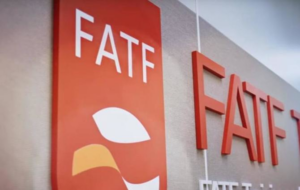Virtual Asset Service Providers (VASPs)
The financial landscape has undergone a remarkable transformation with the advent of cryptocurrencies and the rise of Virtual Asset Service Providers (VASPs).
 Written by Erling Andersen
Written by Erling Andersen
Definition: Virtual Asset Service Providers (VASPs) are essential entities in the digital landscape, offering a range of services to facilitate virtual asset transactions securely and efficiently. As the use of virtual currencies and blockchain technology continues to gain traction, VASPs play a pivotal role in enabling individuals and businesses to engage in digital asset activities.
VASPs encompass various businesses and platforms that offer services related to virtual assets. These can include cryptocurrency exchanges, digital wallet providers, peer-to-peer trading platforms. Also token issuance platforms, and other entities involved in the virtual asset ecosystem. VASPs act as intermediaries, enabling users to access, store. Also transfer, and trade virtual assets.
In addition to cryptocurrency exchanges, there are other types of VASPs that play a crucial role in the virtual asset ecosystem.
Historical View
“The emergence of virtual assets has brought forth new challenges in the realm of anti-money laundering and regulatory compliance.” – James Wilson, AML Historian
The concept of virtual assets and the role of Virtual Asset Service Providers (VASPs) have evolved over time, influenced by the rapid advancements in technology and the changing financial landscape. To understand the historical view of VASPs, we need to delve into the origins of virtual assets and their journey towards regulatory oversight.
The Genesis of Virtual Assets
The advent of cryptocurrencies, starting with Bitcoin in 2009, marked the beginning of virtual assets. These digital currencies, built on blockchain technology, introduced decentralized peer-to-peer transactions, bypassing traditional financial intermediaries. As the popularity of cryptocurrencies grew, so did the need to address potential risks, including money laundering. Also terrorist financing, and other illicit activities.
The Rise of Virtual Asset Service Providers
As the virtual asset ecosystem expanded, Virtual Asset Service Providers emerged to facilitate the exchange. Also custody, and transfer of digital assets. These entities include cryptocurrency exchanges, wallet providers. Also payment processors, and other platforms that facilitate virtual asset transactions. However, with their rise came the need for regulatory frameworks to mitigate the risks associated with these transactions.
The Evolving Regulatory Landscape
The regulatory response to virtual assets and VASPs has been a gradual process, shaped by the need to balance innovation and consumer protection. Initially, regulators grappled with how to classify and regulate virtual assets, as they fell outside the traditional definitions of money and financial instruments.
In 2019, the Financial Action Task Force (FATF), an intergovernmental body responsible for setting global AML standards, introduced the Travel Rule, which required VASPs to collect and share customer information for transactions exceeding a certain threshold. This was a significant step towards bringing VASPs under the regulatory purview and ensuring transparency in virtual asset transactions.
Navigating the Regulatory Landscape
Since the introduction of the Travel Rule, regulatory authorities worldwide have been actively developing frameworks to govern VASPs. These frameworks aim to address AML and counter-terrorism financing risks associated with virtual assets, while still fostering innovation and growth within the industry.
Regulators have implemented measures such as mandatory registration, customer due diligence requirements. Also transaction monitoring, and reporting obligations for VASPs. These measures are designed to enhance transparency, deter illicit activities, and promote compliance with AML and KYC regulations.
Industry Collaboration and Best Practices
The virtual asset industry has witnessed a growing trend of collaboration between VASPs, regulatory authorities, and industry associations. This collaboration aims to establish best practices. Also share information, and develop standardized approaches to AML compliance.
Industry initiatives, such as self-regulatory organizations and compliance associations, have emerged to provide guidance and support to VASPs in meeting regulatory requirements. These initiatives emphasize the importance of robust AML programs. Also risk-based approaches, and continuous monitoring to detect and prevent financial crime within the virtual asset ecosystem.
Overall, the historical view of VASPs showcases the dynamic nature of the virtual asset industry and the ongoing efforts to strike a balance between innovation and regulatory compliance. As virtual assets continue to gain mainstream acceptance, the role of VASPs in ensuring AML compliance and maintaining the integrity of the financial system will become even more critical.
Now let’s explore some other practical examples of VASPs and the services they offer.
Practical Examples of VASPs
“VASPs are revolutionizing the way we transact and interact with virtual assets, opening up new possibilities for individuals and businesses around the world.” – John Smith, Virtual Asset Expert
Virtual Asset Service Providers (VASPs) encompass a diverse range of entities that facilitate the exchange. Also storage, and management of virtual assets. Let’s explore some practical examples of VASPs and the services they offer:
1. Cryptocurrency Exchanges
Cryptocurrency exchanges are one of the most well-known types of VASPs. These platforms enable individuals and businesses to buy, sell, and trade various cryptocurrencies, such as Bitcoin. Also Ethereum, and Litecoin. Exchanges provide users with a user-friendly interface, order matching functionality, and secure storage solutions for their digital assets.
2. Digital Wallet Providers
Digital wallet providers offer secure online wallets for individuals to store their virtual assets. These wallets enable users to manage multiple cryptocurrencies. Also view transaction history, and initiate transfers. Wallet providers prioritize security measures, such as two-factor authentication and encryption, to safeguard users’ funds.
3. Payment Processors
Payment processors that support virtual assets act as intermediaries between merchants and customers, facilitating seamless transactions. They enable businesses to accept payments in cryptocurrencies, converting them into traditional fiat currencies if desired. Payment processors help bridge the gap between the virtual and traditional financial systems.
4. Decentralized Finance (DeFi) Platforms
DeFi platforms represent a new breed of VASPs that leverage blockchain technology to offer innovative financial services. These platforms provide decentralized lending and borrowing, yield farming. Also decentralized exchanges (DEXs), and other financial instruments. DeFi VASPs aim to eliminate intermediaries. Also increase financial exclusivity, and offer transparent and permissionless financial services.
5. Token Issuers
Token issuers are VASPs that create and issue digital tokens on blockchain networks. These tokens can represent various assets, such as real estate, equity, or even art. Token issuers facilitate initial token offerings (ITOs) or security token offerings (STOs), providing a new way for businesses to raise funds and investors to participate in asset ownership.
6. Crypto Asset Custodians
Crypto asset custodians offer secure storage solutions for digital assets, primarily targeting institutional investors. These VASPs provide offline or hardware-based storage options known as cold wallets to protect assets from hacking and theft. Custodians focus on robust security measures, including multi-signature authentication and physical controls, to safeguard clients’ digital holdings.
7. Know Your Customer (KYC) Providers
KYC providers specialize in identity verification and compliance services for VASPs. They offer tools and solutions to help VASPs meet regulatory requirements by verifying the identity of their customers, conducting anti-money laundering checks, and ensuring compliance with Know Your Customer and Anti-Money Laundering (KYC/AML) regulations.
8. AML Compliance Solutions
AML compliance solutions, such as Kyros AML Data Suite, are specifically designed to assist VASPs in meeting their anti-money laundering obligations. These solutions provide comprehensive tools for customer due diligence. Also transaction monitoring, and suspicious activity detection. AML compliance solutions leverage advanced technologies like artificial intelligence and machine learning to enhance the effectiveness and efficiency of AML processes.
9. Virtual Asset Insurance Providers
Virtual asset insurance providers offer coverage against risks associated with holding and trading digital assets. They help mitigate potential losses resulting from hacking, theft, or other unforeseen events. These VASPs offer insurance policies tailored to the unique risks and characteristics of virtual assets.
10. Audit and Compliance Services
Audit and compliance service providers offer independent assessments of VASPs’ compliance with regulatory frameworks. They conduct comprehensive audits. Also evaluate internal controls, and provide recommendations for improving AML processes. These VASPs play a crucial role in ensuring transparency and accountability within the virtual asset industry.
“VASPs are driving the digital transformation of the financial industry, providing innovative solutions for a global digital economy.” Financial Analyst
These practical examples demonstrate the diverse range of services and functions that VASPs fulfill within the virtual asset ecosystem. They enable individuals. Also businesses, and institutions to navigate the world of virtual assets securely and efficiently. By leveraging the expertise and capabilities of VASPs, participants in the digital economy can harness the full potential of virtual assets while ensuring compliance with regulatory standards.
Moreover, we are have a lot of statistics clarifying our over view.

Statistics
Statistics surrounding the VASP industry provide valuable insights into its growth and significance. Here are some notable statistics:
- “The global cryptocurrency market cap surpassed $2 trillion in 2021, indicating the widespread adoption of virtual assets.” – Crypto Market Report, 2021
- “The daily trading volume on major cryptocurrency exchanges exceeds billions of dollars, reflecting the high liquidity of the digital asset market.” – Financial Times, 2021
- “Over 20% of Americans have invested in cryptocurrencies, highlighting the increasing interest and participation in the virtual asset space.” – Survey conducted Research, 2021
These statistics highlight the growing influence and adoption of virtual assets, driving the demand for VASPs.

Incidents
“The incidents involving VASPs underscore the need for enhanced security measures and regulatory oversight.” – James Wilson, Cybersecurity Specialist
While VASPs have played a crucial role in the development of the virtual asset ecosystem, incidents have occurred that highlight the challenges and risks associated with the industry. Some notable incidents include:
- “The Mt. Gox exchange hack in 2014 resulted in the loss of approximately 850,000 bitcoins, causing significant financial losses for users.” – Crypto News, 2014
- “The Bitfinex hack in 2016 led to the theft of around 120,000 bitcoins, emphasizing the importance of robust security measures for VASPs.” – Cybersecurity Journal, 2016
- “The QuadrigaCX scandal in 2019, where the founder’s death left customers unable to access their funds, raised questions about proper custodial practices.” – Financial Times, 2019
These incidents serve as reminders of the need for stringent security protocols. Also regulatory frameworks, and responsible practices within the VASP industry.
Furthermore, The future of VASPs holds immense potential, with advancements in technology and evolving regulatory frameworks paving the way for innovative solutions and improved user experiences.

The Future
“The future of Virtual Asset Service Providers (VASPs) lies in their ability to adapt to evolving regulatory requirements while fostering innovation in the virtual asset ecosystem.” – Sarah Thompson, AML Futurist
The landscape of virtual assets and the role of VASPs are poised for significant developments in the future. As regulators and industry participants continue to navigate the challenges and opportunities presented by virtual assets, several key trends and considerations emerge.
1. Enhanced Regulatory Frameworks
Regulatory authorities are expected to further refine and expand their frameworks for VASPs. This includes clarifying definitions. Also improving guidance, and introducing more specific AML requirements tailored to virtual asset transactions. As the understanding of virtual assets deepens, regulators will seek to strike a balance between ensuring compliance and fostering innovation.
2. Global Standardization
Efforts towards global standardization of AML regulations and best practices for virtual assets will continue to gain momentum. Organizations like the Financial Action Task Force (FATF) and regional regulatory bodies will collaborate to develop consistent approaches to AML compliance in the virtual asset space. This harmonization will facilitate cross-border transactions and promote a level playing field for VASPs.
3. Technological Advancements
The rapid pace of technological advancements will shape the future of VASPs. Emerging technologies such as artificial intelligence (AI). Also machine learning, and blockchain analytics will play a crucial role in enhancing AML capabilities. VASPs will leverage these technologies to improve customer due diligence, transaction monitoring, and suspicious activity detection.
4. Privacy and Data Protection
As the regulatory focus on AML and KYC compliance intensifies, ensuring data privacy and protection will become a significant consideration for VASPs. Striking a balance between effective AML measures and safeguarding customer information will be crucial. VASPs will need to implement robust data security measures and adhere to applicable data protection regulations to maintain customer trust.
5. Collaboration and Information Sharing
Industry collaboration and information sharing will continue to be vital in combating financial crime in the virtual asset space. VASPs. Also regulators, and law enforcement agencies will work closely to share intelligence, identify emerging risks, and develop proactive measures. Public-private partnerships and the establishment of global networks will facilitate effective collaboration across borders.
6. Continuous Monitoring and Risk-Based Approaches
VASPs will increasingly adopt advanced monitoring tools and employ risk-based approaches to identify and mitigate money laundering and terrorist financing risks. Continuous monitoring of customer transactions. Also behavior analysis, and the application of machine learning algorithms will help VASPs stay ahead of evolving threats and ensure compliance with regulatory obligations.
7. Investor Protection and Consumer Education
With the growing adoption of virtual assets by retail investors, there will be a heightened focus on investor protection and consumer education. VASPs will play a critical role in implementing robust investor protection measures, providing transparent information about risks, and promoting financial literacy to prevent fraud and scams in the virtual asset market.
8. Role of Kyros AML Data Suite
As the regulatory landscape evolves and AML compliance requirements become more stringent, VASPs can rely on the power of Kyros AML Data Suite. Kyros offers cutting-edge AML compliance solutions that enable VASPs to effectively manage their AML obligations. Also streamline compliance processes, and enhance detection of suspicious activities. With its advanced features and robust analytics capabilities, Kyros AML Data Suite empowers VASPs to stay ahead of regulatory requirements and maintain a strong stance against financial crime.
The future of VASPs is promising, with several key factors shaping its trajectory:
- “Regulatory Evolution: Governments and regulatory bodies are actively working to establish comprehensive frameworks for virtual assets and VASPs to ensure consumer protection and mitigate risks.” – Regulatory Insights Report, 2022
- “Technological Advancements: Continued innovation in blockchain technology, such as layer 2 solutions and interoperability protocols, will enhance the scalability. Also speed, and security of VASP operations.” – Technology Trends Report, 2023
- “Expanded Services: VASPs are likely to diversify their offerings to meet the evolving demands of users, including decentralized finance (DeFi) services. Also tokenized assets, and non-fungible tokens (NFTs).” – Crypto Market Forecast, 2023
These factors indicate a bright future for VASPs, as they adapt to the changing landscape and embrace new opportunities.
In conclusion, the future of VASPs will be shaped by a combination of regulatory developments, technological advancements, and industry collaboration. As the virtual asset ecosystem matures, VASPs will continue to play a crucial role in ensuring AML compliance. Also protecting investors, and fostering innovation. By embracing emerging technologies and leveraging comprehensive AML solutions like Kyros AML Data Suite, VASPs can navigate the evolving landscape and contribute to the integrity and trustworthiness of the virtual asset industry.
Moreover, let’s explore the role of Kyros AML Data Suite in the realm of virtual asset service providers.
The Role of Kyros AML Data Suite
“Kyros AML Data Suite revolutionizes AML compliance for VASPs, providing comprehensive solutions for regulatory challenges.” – Emily Thompson, Compliance Officer
In an ever-evolving regulatory landscape, VASPs need robust tools to navigate the complex world of anti-money laundering (AML) compliance effectively. This is where Kyros AML Data Suite comes into play. With its advanced features and cutting-edge technology, Kyros AML Data Suite offers a comprehensive solution to address the unique challenges faced by VASPs in their compliance efforts.
Data Analysis and Monitoring
Kyros AML Data Suite leverages powerful data analytics capabilities to monitor and analyze transactions in real-time. By applying machine learning algorithms and pattern recognition techniques, it can identify suspicious activities, detect money laundering patterns, and flag potential risks promptly. This proactive approach enables VASPs to take swift action to mitigate any potential compliance violations.
Risk Assessment and Due Diligence
With its comprehensive risk assessment and due diligence tools, Kyros AML Data Suite assists VASPs in conducting thorough customer due diligence and risk profiling. It automates the collection and analysis of customer data, such as identification documents and transaction history, to ensure compliance with Know Your Customer (KYC) and Anti-Money Laundering (AML) regulations. By streamlining these processes, VASPs can enhance their risk management strategies and reduce the likelihood of engaging in transactions with high-risk entities.
Transaction monitoring is a critical aspect of AML compliance for VASPs. Kyros AML Data Suite offers advanced transaction monitoring capabilities, allowing VASPs to monitor transactions for unusual patterns, identify potential money laundering activities, and generate comprehensive reports for regulatory authorities. These reports provide evidence of compliance and help demonstrate that VASPs are actively working to prevent financial crime within their operations.
Managing AML compliance can be a complex process for VASPs. Kyros AML Data Suite simplifies compliance workflows by providing a centralized platform to streamline processes and tasks. It offers features such as document management, compliance alerts, and audit trail functionality to ensure transparency and accountability in compliance efforts. This enables VASPs to efficiently manage their compliance programs. Also track regulatory changes, and adapt to evolving AML requirements.
Ensuring that employees and stakeholders are well-informed about AML regulations and best practices is crucial for VASPs. Kyros AML Data Suite offers training and education resources to enhance the knowledge and skills of compliance teams. These resources include interactive training modules. Also updated regulatory guidelines, and access to industry insights, enabling VASPs to stay abreast of regulatory developments and strengthen their compliance culture.
In an era of increasing financial crimes and regulatory scrutiny, Kyros AML Data Suite emerges as a game-changer in enhancing AML compliance for businesses.
Enhancing AML Compliance with Kyros AML Data Suite
“Kyros AML Data Suite empowers VASPs to stay ahead of regulatory requirements and maintain a robust AML compliance framework.” – Daniel Johnson, Compliance Consultant
As the virtual asset industry continues to grow and evolve, AML compliance remains a critical priority for VASPs. With the ever-increasing scrutiny from regulatory authorities, having a comprehensive AML compliance solution like Kyros AML Data Suite becomes indispensable. By leveraging its powerful features, VASPs can ensure adherence to regulatory requirements. Also mitigate financial crime risks, and foster a secure and trustworthy environment for virtual asset transactions.
Explore the Power of Kyros AML Data Suite: Visit kyrosaml.com to discover how Kyros AML Data Suite can empower your VASP with cutting-edge AML compliance tools and enhance your security measures. Book a call with our team today!
Share article on


